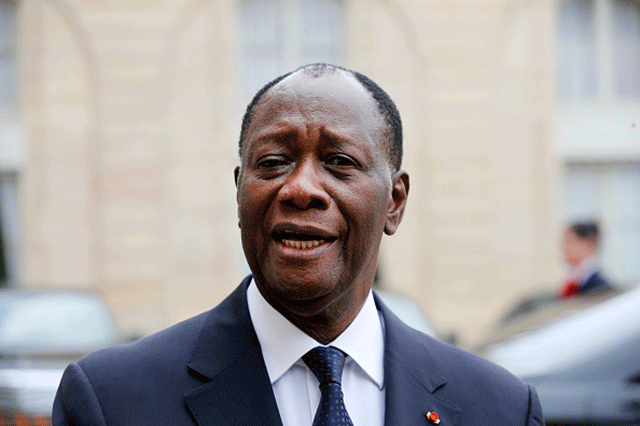Abidjan – Ivory Coast’s 80-year-old president, Alassane Ouattara, has given no sign of wanting to hand over the reins following a closely-scrutinised cabinet reshuffle and the appointment of a deputy.
Analysts have been ruminating over last Tuesday’s big announcement for signs of Ouattara’s plans – a crucial issue in a country that carries the scars of political turbulence.
Nearly two years ago, as elections loomed, Ouattara signalled he would retire from politics after spending 10 years at the helm.
But those plans were thrown into reverse when his anointed successor, then prime minister Amadou Gon Coulibaly, suddenly died.
ALSO READ | Ivory Coast’s Ouattara names regional bank chief as deputy
In response, Ouattara dusted off a bid for a third presidential term, sparking bitter criticism that he was circumventing term limits under the constitution. Scores died in election-related violence.
But last week’s appointments suggest Ouattara wants to retain a close grip on power and quash speculation that he is grooming a successor, analysts say.
He named a little-known technocrat, regional central banker Tiemoko Meyliet Kone, 73, as vice president, filling a seat that had been vacant for nearly two years.
And he reappointed Prime Minister Patrick Achi to head a reshuffled cabinet that is also being streamlined under an economy drive.
Candidate in 2025?
“The prime message… is that he’s adopted a position to fight for 2025,” when the next presidential elections are due, said political analyst Rodrigue Kone.
“He’s not signalling that he’s going to hand over to a successor, hand over to a new generation.”
The West African state, a major producer of coffee and cocoa, has been ruled by the same generation of politicians for decades – a ballet of on-again, off-again rivalries and alliances.
Ouattara came to power in 2011 after a brief but bloody conflict sparked by the refusal of his then-rival, Laurent Gbagbo, to accept election defeat. Several thousand people died and the country split along north-south lines.
ALSO READ | Conflict ‘behind us’, Ivory Coast’s Ouattara says after greeting rival
This division may have a bearing on Ouattara’s appointments, said Kone, the analyst. The new vice president hails from the north, while the returning prime minister has his political bastion in the south.
Ouattara has also teasingly spoken of other possible contenders for succession – in an interview with French media in February, he said he was thinking of “half a dozen names”.
Several loyal Ouattara figures have returned to the reshuffled government, such as Kandia Camara as minister of foreign affairs, and Tene Birahima Ouattara – the president’s brother – at defence.
“You take the same people and start again! The expected revolution didn’t take place,” said the Nouveau Reveil daily, close to the opposition Ivory Coast Democratic Party (PDCI).
‘All options open’
“The president is leaving all options open concerning speculation about his successors,” said the analyst Kone.
Ouattara has also tightened his grip on the ruling RHDP, promoting a historic ally to a top position.
A diplomat said it was crucial for Ouattara to keep everyone off-balance about his plans.
“If he gives the slightest indication that he wants to step down, he could lose market value,” the source commented.
ALSO READ | Former Ivory Coast foes Ouattara, Gbagbo set for long-awaited meeting
Some of the fog of uncertainty about Ouattara’s plans may be dispelled later this year, when a bill is put to the National Assembly to limit the maximum age for presidential candidates to 75.
By the time of the next elections in 2025, Ouattara will be 83. The two other rivals of his generation, former presidents Gbagbo and Henri Konan Bedie, will be 80 and 91 respectively.
All three would be disqualified from running if the law is passed.
Follow African Insider on Facebook, Twitter and Instagram
Source: AFP
Picture: Getty Images
For more African news, visit Africaninsider.com


